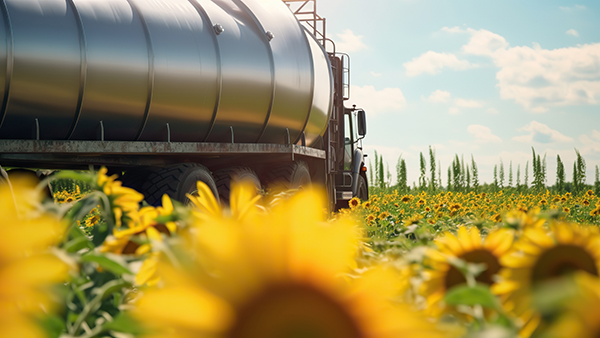Bio Diesel & Diesel Difference
Biodiesel and diesel are both types of fuels, but they have distinct
differences in terms of their composition, production methods, and environmental impact. Here
are the key differences between biodiesel and diesel:
Source of Origin:
- Diesel: Conventional diesel fuel is derived from crude oil
through a refining process. It is a fossil fuel and a hydrocarbon-based
liquid.
- Biodiesel: Biodiesel is a renewable fuel made from
biological sources such as vegetable oils, animal fats, or recycled cooking
grease. It is a type of biofuel.
Composition
- Diesel: Conventional diesel is composed of hydrocarbons,
which are organic compounds made up of hydrogen and carbon atoms.
- Biodiesel: Biodiesel is composed of fatty acid methyl
esters (FAME) or fatty acid ethyl esters (FAEE), which are produced through
a chemical process called transesterification. Transesterification involves
reacting the triglycerides in oils or fats with an alcohol (usually methanol
or ethanol) to produce biodiesel and glycerol.
Renewability:
- Diesel: Diesel fuel is non-renewable and comes from finite
fossil fuel resources.
- Biodiesel: Biodiesel is considered renewable because it is
produced from plant or animal-derived sources that can be replenished.
Environmental Impact
- Diesel: Conventional diesel combustion releases carbon
dioxide (CO2) and other pollutants, contributing to air pollution and
climate change.
- Biodiesel: Biodiesel generally produces lower levels of
greenhouse gas emissions compared to conventional diesel. It is often
promoted as a cleaner-burning alternative, with reduced emissions of sulfur
and particulate matter.
Compatibility:
- Diesel: Conventional diesel fuel can be used in diesel
engines without modification.
- Biodiesel: Biodiesel can be used in diesel engines with
little or no modification. It is often blended with conventional diesel fuel
to create biodiesel blends, such as B20 (20% biodiesel, 80% diesel) or B5
(5% biodiesel, 95% diesel).
Energy Content
- Diesel: Diesel fuel typically has a higher energy content per unit volume compared to biodiesel.
- Biodiesel: Biodiesel has a slightly lower energy content than conventional diesel fuel, which may result in slightly reduced fuel economy.






